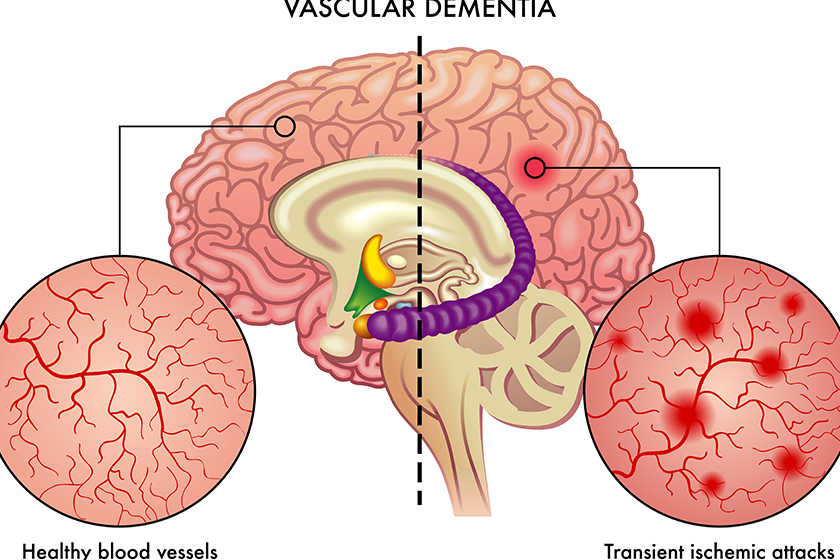Vascular dementia is a condition caused by reduced blood flow to the brain, often leading to gradual cognitive decline. At our Memory Care community, we recognize the importance of providing support and resources for you or your loved ones as they navigate this journey.
Understanding the stages of vascular dementia can help you recognize changes, plan for the future, and find the right care at every step.
No Observable Symptoms
The first stage of vascular dementia is marked by undetectable symptoms. Although the brain may already show signs of damage, you or your loved ones will not notice any changes in memory, thinking, or behavior. This stage is often identified only through medical imaging or assessments during evaluations for other health concerns.
Subtle Forgetfulness
In the second stage, you may notice mild forgetfulness or slight changes in thinking. These lapses are often brushed off as normal aging. For example, someone might misplace everyday items or struggle to recall recent conversations. At this stage, the changes are rarely noticeable to others and may not interfere with daily activities.
Noticeable Cognitive Challenges
By the third stage, the symptoms become more apparent. Memory loss and difficulty concentrating may begin to affect daily life. You or your loved ones might have trouble planning tasks, organizing thoughts, or remembering details. This stage can also bring mood changes, including frustration or mild depression. It’s often during this phase that a diagnosis of vascular dementia is made.
Difficulty with Daily Activities
The fourth stage introduces more significant challenges in managing daily routines. Tasks like cooking, shopping, or handling finances may become overwhelming due to memory lapses or confusion. At this stage, you or your loved ones may start withdrawing from social interactions or relying on others for assistance with basic activities.
Emotional changes such as frustration or embarrassment about forgetfulness can also arise. The symptoms become more noticeable to family members, often prompting discussions about additional care, safety modifications at home, or exploring supportive options like a memory care community.
Severe Cognitive Decline
In the fifth stage, independence becomes increasingly difficult, and your loved ones may struggle with performing even simple, familiar tasks. Activities such as dressing appropriately for the weather or recognizing long-time friends or family members may become challenging.
Judgment and decision-making abilities further decline, increasing the risk of vulnerability to unsafe situations. Memory lapses may include forgetting key details, such as their own address or phone number. This stage often requires consistent supervision and structured routines to reduce confusion and ensure well-being, making professional support in a Memory Care community an invaluable resource.
Advanced Decline
The final stage of vascular dementia brings significant physical and cognitive challenges that impact every aspect of daily life. Communication may be limited to simple words, facial expressions, or gestures, and mobility is often reduced to the point of needing assistance for movement or positioning.
Eating and personal care routines require hands-on help, as these abilities gradually diminish. Around-the-clock care becomes necessary to ensure safety, manage medical needs, and provide emotional comfort. While this stage is deeply challenging for families, our Memory Care community is dedicated to creating a supportive environment that prioritizes your loved one’s dignity, emotional connection, and quality of life.
At our retirement community, we are dedicated to helping you and your loved ones through every stage of vascular dementia. Contact us today to learn more about our personalized Memory Care services.







